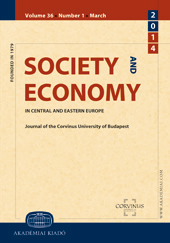Does the European Court of Justice put a crimp in efficient and coordinated corporate income taxation in Europe?
Does the European Court of Justice put a crimp in efficient and coordinated corporate income taxation in Europe?
Author(s): H. Dieter Wenzel, Jürgen JilkeSubject(s): Supranational / Global Economy, Economic development, EU-Accession / EU-DEvelopment, Fiscal Politics / Budgeting, EU-Legislation
Published by: Akadémiai Kiadó
Keywords: corporate taxation; European Court of Justice;
Summary/Abstract: In the European Union the statutory principle of the single market of the pertinent EU Treaties applies. Especially if national norms run contrary to the realisation of EU goals, the member states are required to act unitarily and coordinated. In particular, measures effecting the unequal treatment of domestic and foreign actors can often transgress the principle of the unitary European single market and thus have to be discarded. The ambit of indirect taxation according to article 93 of the EC Treaty clearly is subject to a requirement of harmonisation, which is not existent in the ambit of direct taxation. Nevertheless, it appears that EU influence on direct taxation regarding harmonisation goals is the rule rather than the exception. The legislative competence of the member states to achieve supranational goals leads to a characteristic and inefficient legislation. Within the scope of this paper the nature of the inefficient legislation as well as the reasons of its decades-long survival will be discussed. In order to accomplish this, the eminent importance of corporate income taxation will be expounded, first in quantitative and second in qualitative terms. The characterisation of the quantitative and qualitative importance for the EU as well as for the member states will disclose how the current legislation came about. In this context the European Court of Justice will play a major role, which surpasses mere power of jurisdiction and results from an adverse distribution of competencies. On that note the logic behind the proposals of the European Commission can be examined. The paper concludes by suggesting an approach for reform based on the propositions of the European Commission.
Journal: Society and Economy. In Central and Eastern Europe ǀ Journal of the Corvinus University of Budapest
- Issue Year: 33/2011
- Issue No: 2
- Page Range: 295-320
- Page Count: 26
- Language: English

